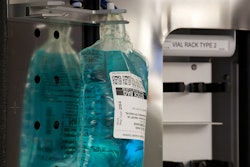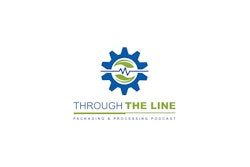This content was written and submitted by the supplier. It has only been modified to comply with this publication’s space and style.
The Closed Loop Fund
Recycling Reinvented, a national nonprofit advocate for extended producer responsibility (EPR) for packaging and printed paper (PPP), salutes the recent announcement by Walmart on the creation of the Closed Loop Fund. The Closed Loop Fund (CLF) will be a $100 million source of loans to local governments and the private sector to enhance recycling in the U.S.
Recycling Reinvented also lauds the support of this fund by CEOs of some of the country’s largest consumer packaged goods companies, including Procter & Gamble, The Coca-Cola Company, Johnson & Johnson Family of Companies, Keurig Green Mountain, Inc., PepsiCo, SC Johnson, and Unilever.
There is a growing alignment among companies and recycling advocates such as Recycling Reinvented on the problem that we are collectively trying to solve—to meet the demand of manufacturers for recycled material. We may have different approaches to solve this problem but our goal is the same. The recognition by these corporate partners that there is a “systems problem” in recycling will help break down the “silos” that exist among commodity associations, state and local governments, and waste haulers that have hindered progress in recycling. This can only be positive for all concerned.
Walmart is proposing a tested approach—project related investment (PRI)—that has been used by charitable foundations and nonprofits for decades for capital needs in other fields. This is an innovative approach for recycling that deserves encouragement. There are some limitations to this approach.
Cities that increase recycling through the CLF would pay back loans to the fund, and most of that funding would be realized through lower disposal costs for garbage. This model would work for communities that control the hauling of garbage. Local governments for communities in which households pay haulers directly will not realize these savings. The number of these communities in the U.S. increases especially as one moves away from the East Coast.
While this initiative has only just been announced, our organization hopes that the Closed Loop Fund will invite transparency in how it sets its loan priorities, on what geographic areas in which it will focus, outcomes that the loans hope to achieve, and a process for including non-governmental organizations, local governments, and other stakeholders to help build consensus on what constitutes success.
Most importantly, given that consumers are spending several billion dollars currently as taxpayers and ratepayers for the cost of recycling PPP, and considering that a $100 million loan fund will likely lend a portion of its assets annually, it will be important to demonstrate how the Fund’s partners can achieve a scale necessary to meet market demand. In particular, there are countless municipalities across the country that have not had the political will to pay for recycling, and they may be unwilling to incur debt to pay for it in the future using a loan fund.
The board and staff of Recycling Reinvented look forward to hearing more in the weeks to come. We encourage the fund’s organizers to share their goals, a proposed timeline, and criteria for success at their earliest opportunity, and look forward to working to achieve the same goals of providing manufacturer demand for recycled material for their products and packaging.
Recycling Partnership
Recycling Reinvented also applauds the work of what is now called The Recycling Partnership. The Partnership, initiated by the Southeast Recycling Development Council (SERDC) and now administered by the Curbside Value Partnership (CVP), is an effort to use corporate funding to support recycling. This grant-based focus on several mid-size cities in the southeastern U.S. in the coming year is another example of consumer brands and their suppliers pooling financial resources to make targeted investments.
Recycling Reinvented’s Executive Director Paul Gardner participated in the initial meeting for this effort in December, and was impressed with the alignment among recycling advocates and companies about defining the problem and the best practices required to increase recycling. Recycling Reinvented’s cost-benefit study on EPR for PPP in Minnesota demonstrates how these best practices could be expanded at the right scale.
It appears that the dollars available through the Recycling Partnership may be up to $2 million in 2015. The Recycling Partnership has gone through a relatively thorough process to select several cities to target with resources for recycling carts, and education and other tools.
As the Recycling Partnership focuses on re-tooling recycling infrastructure, Recycling Reinvented’s focus remains on re-tooling policy through EPR for packaging and printed paper. In our view it offers the most effective tool for achieving scale and efficiency in the shortest time period. It also sends market signals to brands to create incentives for more recyclable and recycled content packaging. Taken together, our policy work and these two corporate-led efforts can combine to help drive the higher recycling rates that American manufacturers are looking for.






















